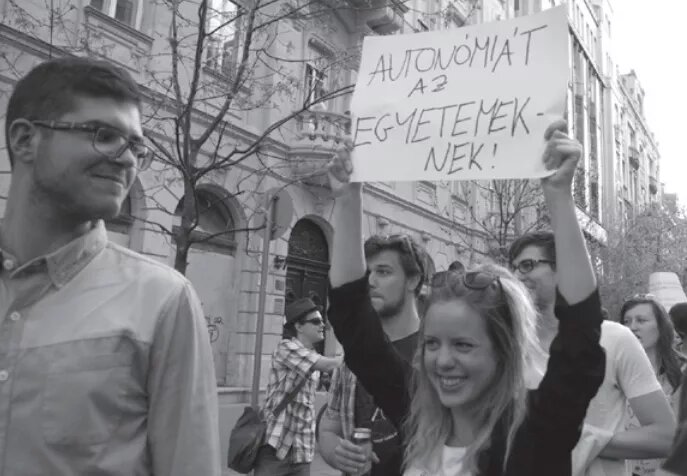
Two years have passed since the publication of the study “Political Orientations, Values and Activities of Hungarian University and College Students”. This publication revealed tendencies within certain groups of young Hungarians regarding party preferences, voting participation and habits, their views and understanding of democracy, as well as aspects that have recently gotten more emphasis, such as online activism and self-organization. In the publication we analyzed the questions of whether in a democratic system a generation of new democrats could emerge, and to what extent Hungarian youth is committed to democracy as a system of rule.
The Heinrich-Böll-Stiftung has commissioned this current volume of the study to further examine existing and new tendencies of Hungarian youth regarding their political choices and the reasons behind them. While previously only students who reside in the country were in the focus, the scope of this recent study has been extended to include the political involvement and attitudes of that part of the Hungarian youth who already are emigrating or are planning to soon move abroad. The title, “Exit, Voice, Loyalty and Neglect – Political Attitudes of Hungarian University and College Students” reflects a possible alignment of the various paths of political behavior observed within this generation.
Since 2013, certain trends that were visible in the Hungarian political scene have gained even more ground. Recent developments include some new attempts for grassroots activism, a series of civil protests, and the governing FIDESZ party losing their 2/3 supermajority in parliament, but also Prime Minister Viktor Orbán announcing his program of illiberal democracy, continuing centralization in the fields of education and administration, and the far-right party Jobbik becoming even stronger. Meanwhile a large number of Hungarians, mostly youth, are leaving the country to continue their studies or to pursue a career and life abroad.
What are the attitudes of youth in Hungary towards democracy, and how active are they in politics? What are their party preferences, and how involved are they with public life? Are they planning to leave the country, and if so, do they become less or more engaged with Hungarian politics from abroad? This study explores such questions and attempts to place the findings into a theoretical framework developed for this purpose using the categories of exit, voice, loyalty, and neglect.
We would like to express our gratitude to the editor and authors of the study for their efforts and enthusiasm, and hope that the findings of this study will initiate further discussions of this issue.
The publication can be downloaded here.